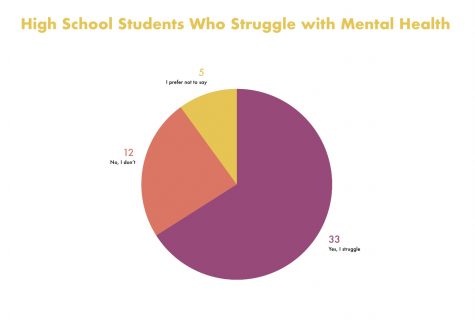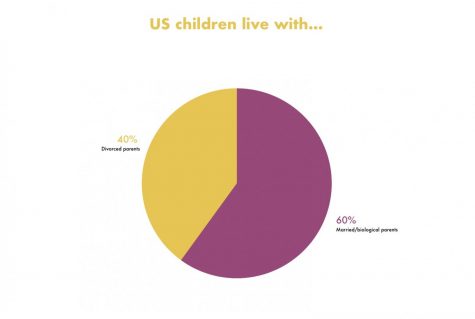Is Divorce to Blame?
According to Polaris Teen Center, approximately 1 in 5 teenagers (12-18 years old) suffer with some form of mental health issues. Multiply psychologists are looking for the main source of development of these mental health issues. Most people believe mental health issues only develop from anxiety, depression, low self-esteem, sleep deprivation, etc. However, one of the most overlooked causes of developing poor mental health is having divorced parents.
Having divorced parents is unfortunately not something children can control. But as a young adult, who has had divorced parents my entire life, there are some dangerous “side effects” to living the “divorced parents life.”

Since divorce is overlooked when it comes to developing mental health issues, children are experiencing issues at a much faster rate. In a recent study done by Verywell Family they concluded: “Kids struggle the most during the first year or two after the divorce. Kids are likely to experience distress, anger, anxiety, and disbelief.” These are serious health issues that simply cannot be pushed to the side and children need the help they deserve.
One side effect of having divorced parents is the overabundance of stress a child can feel. “The number one thing that I see can be detrimental to children, is the parents putting the kids in the middle,” said Norwin High School Psychologist Rachel Butler-Pardi. “It becomes an issue when the parents begin to ask the child to relay a message to the other parent, and this is extremely detrimental because it pulls kids into the divorce when you really should leave them out of it.”
This stress then leads children to worry about events where their parents may be in the same place together. According to the NCBI: “Even resilient young people from divorced families often report painful feelings or encounters, such as worrying about events like graduations or weddings when both parents will be present.” Overall, thoughts like these should not be what a child worries about on such a big day like graduation. And yet these are still things children with divorced parents have to worry about.
“My parents aren’t always on the same page with my schooling and the activities I participate in afterwards so it’s hard sometimes to feel responsible for making sure one parent is just involved in my life as the other,” said junior Ashley Cramer.
The stress teens can experience, when put in the middle of a divorce, can cause them to act out. Verywell Family explained: “Adolescents with divorced parents are more likely to engage in risky behavior, such as substance use and early sexual activity. In the United States, adolescents with divorced parents drink alcohol earlier and report higher alcohol, marijuana, tobacco, and drug use than their peers.” Kids tend to act out simply because their own issues are being overlooked by their parents. Although this is a fault to both the adults and children, when in the early stages of divorce, adapting to the new “divorced parents life” tends to take over. When that takes over, the mental health issues begin to worsen or even get pushed to the side.

Along with the stress and the feeling of being overlooked, teens tend to struggle with creating relationships. “I strongly believe that it becomes a struggle for kids to then create relationships with others,” said Butler-Pardi. “It impacts kids in those close relationships because some kids may see someone close to them as someone trying to manipulate them rather than being friends. That also causes issues with creating a bound of trust with many people.”
One piece of mental health issues a child may develop while having divorced parents, moves into a never ending snowball effect. Stress leads to acting out and acting out leads to not speaking out about issues one can be struggling with, and so on. But these issues that come along with a divorce are not to be overlooked.
Unfortunately, the divorce rates are not dwindling away to nothing. According to Business Insider, in 2018 there were more than 782,038 divorces and annulments in the United States alone. Although, in the past three years the divorce rate is beginning to decrease, that does not mean the mental health issues caused by divorce are decreasing with it.
Divorce is not going away. Neither is mental health issues. Although some people may not want to speak up about the troubles they are facing while their parents are going through a divorce, that does not mean they aren’t struggling. Mental health issues are growing each day, and living with divorced parents leads to most of those issues and it should not be overlooked.

Megan has been a part of the Knight Krier newspaper staff for the past three years. She is a sports editor and elected newspaper club secretary for the...







